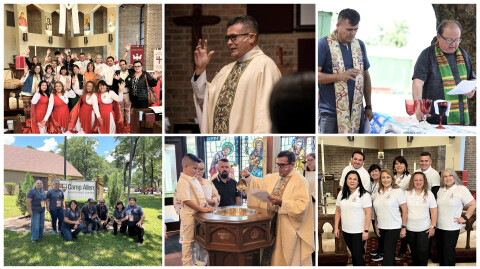Based on the short story, Three Questions by Leo Tolstoy (1828-1910,) the children’s book by the same name, written and beautifully illustrated by Jon J. Muth, presents us with a boy, Nikolai, who has three questions he poses to his animal friends: (1) When is the best time to do things? (2) Who is the most important one? And (3) What is the right thing to do? Completely unconvinced by his friends’ answers, (I do not want to spoil the story too much) the boy decides to travel high to the mountain top to ask Leo, the Turtle, these same questions. He is an old and wise animal, and the boy is confident he has the answers. In the original Tolstoy story, the main character is a Tzar and not a boy, the friends are real people and not animals, and the turtle is a real wise hermit who lives alone in the mountains. The questions in both stories are the same and the desire to know the answers is just as intense.
I have pondered about these questions throughout my life. It is hard to know exactly when the best and most efficacious time to do things is. I often do things when it feels right for me to do them, or at the very last possible moment (procrastination is real!) or on the day the thing is due. But very often doing things sooner or later creates headaches. Do something too soon and you miss additional knowledge or experience that could greatly improve the outcome. Do something at the last minute and you miss the opportunity to review, correct mistakes, or develop further. Those who know exactly when to do things often have advantages other people do not have.
The second question is fundamentally important as it points to the issue of priorities. When you have competing demands for your resources, time, attention, or care you often must prioritize. Who is most important? One of the animal friends responds, “Those closest to heaven.” If this is your answer, then you prioritize those who have higher moral, emotional, or spiritual value in your life. This was the response of the priests and teachers of the law in the Good Samaritan story. They were on their way to the temple. Stopping on the side of the road would have prevented them from going to Mass. God himself was expecting them at the Altar and they could not be late. Spiritual people were waiting for them to lead prayer. They had to come first!
The third question is the coup de gras: What is the right thing to do? One of the animal friends responds, “Having fun all the time.” Entire books have been written about this answer. For many, the right thing to do is that which leads to self-determination, self-differentiation, self-awareness, self-advancement, etc. Having fun in our personal lives often comes in the form of entertainment, the possession of more (fill-the-blanks,) having indulgent foods and drinks, engaging in beyond-the-pale romantic attachments, etc. Certainly, we were created for joy and God placed us in a good earth to till it, grow it, and enjoy it. There is nothing wrong with having fun. In fact, fun and rest are God’s gifts to those who are weary with exhaustion. Making the achievement of fun our life’s greatest aspiration, however, ultimately will leave us empty and desperately alone.
When the boy arrives at the mountain, the old turtle is busy digging a garden. The boy asks his questions and the turtle completely ignores him. At some point, the boy exclaims, “You must be tired, let me help you.” As he finished digging the garden, a violent storm broke out and the pair started walking towards the Turtle’s cabin for shelter. At some point, they heard a cry for help and the boy ran into the stormy woods to rescue a panda bear who had fallen and injured her leg. Now, recovering on the Turtle’s own bed, the panda exclaims, “Where is my child?” The boy then runs back into the dark woods, desperately looking for the baby panda. When he finds it, he reunites him with his grateful mother.
The next day, when the weather had improved, the boy left the turtle’s cabin without an answer to his three questions. Terribly unhappy, he returned and demanded an answer. The turtle said, “Yesterday, if you had not stayed to help me dig the garden, you wouldn’t have heard the panda’s cries for help in the storm. Therefore, the most important time was the time you spent digging the garden. The most important one at the moment was me, and the most important thing to do was to help me with my garden.” Later, the most important time was rescuing the pandas, the most important ones were the panda and her baby, and the most important thing to do was to bring them to safety.
Finally, the wise turtle summarized the lesson of the story, “Remember then that there is only one important time, and that is now. The most important one is always the one you are with. And the most important thing is to do good for the one who is standing at your side. For these, my dear boy, are the answers to what is most important in this world.”
I agree with Tolstoy and I believe his answers reflect how Jesus of Nazareth approached his ministry and his teachings. His answers speak of a complete orientation of the heart to what is truly important. Love of God and love of others have a grounding stage in the here and now, with this person God has placed in my life, and with this set of choices God himself presents me.
May God help us answer these questions for ourselves in a way that is congruent with our faith. Sometimes Jesus sounds very much like a wise turtle. I now leave you with the words of 1 John 4:20b (NLT), “If we don’t love people we can see, how can we love God, whom we cannot see?”
May God continue to bless you and may your life be a blessing to others,
Fr. Roman+





